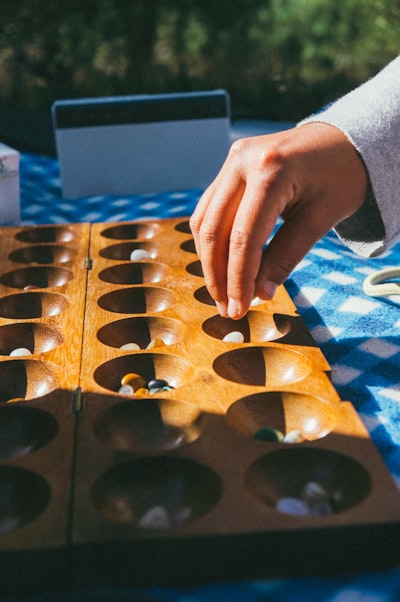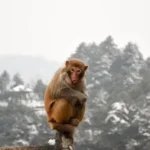- Monkey dreams can hold deep meaning and symbolism, providing insight into our emotional and psychological state.
- The interpretation of monkey dreams is subjective and can be influenced by personal beliefs and experiences.
- It’s important to approach dream interpretation with an open mind and allow space for personal reflection and growth.
- Dream analysis can offer valuable insights into our subconscious desires, emotions, and personal growth.
Dreams about monkeys can hold deep meaning and symbolism, providing insight into our emotional and psychological state. In this article, we will explore the different aspects of interpreting monkey dreams and uncover the hidden meanings behind them.
Interpretation of Monkey Dreams
1. Common Monkey Dream Scenarios
Dreams involving monkeys can manifest in various scenarios, each with its own interpretation and significance. Here are some common monkey dream scenarios:
- Monkey Chasing You
This dream may signify feeling pursued or pressured in your waking life. It could represent unresolved issues or conflicts that you are trying to avoid or escape from. It is a reminder to address these challenges head-on and find a resolution. - Playing with a Monkey
Dreaming of playing with a monkey indicates a lighthearted and playful nature. It suggests that you should embrace your inner child and allow yourself to have fun and enjoy life’s simple pleasures. This dream may also symbolize the need to let go of worries and stresses, and to embrace a more carefree attitude. - Feeding a Monkey
This dream signifies generosity and a nurturing nature. It can represent the desire to care for others and provide support. Alternatively, it may be a reminder to take care of yourself and nourish your own needs. - Being Attacked by a Monkey
If a monkey is attacking you in your dream, it can symbolize repressed emotions or unresolved conflicts. It may indicate that you need to confront these issues and find a resolution. This dream is a reminder not to ignore or suppress negative emotions, as they will only continue to cause harm. - Monkey in Your House
When a monkey appears in your home in a dream, it often symbolizes disruptions within your family or personal relationships. It may indicate the need for better communication, understanding, and addressing conflicts or tensions. This dream is a prompt to foster harmonious relationships and create a peaceful and supportive environment.
2. Emotional and Psychological Analysis of Monkey Dreams
Monkey dreams can provide insight into our emotional and psychological state. Here are some emotions and psychological aspects to consider when interpreting monkey dreams:
- Playfulness and Joy
Seeing a monkey in your dream reflects your playful and joyous nature. It signifies your ability to find humor in life and enjoy the present moment. Embrace your playful side and allow yourself to experience joy and laughter. - Curiosity and Creativity
Monkeys are known for their curiosity and intelligence. A dream involving monkeys can symbolize your own inquisitive nature and creative potential. It may be a sign to explore new ideas, indulge in imaginative pursuits, and nurture your creative side. - Conflict and Betrayal
Aggressive or quarreling monkeys in your dream may indicate conflicts or betrayal in your waking life. It is essential to evaluate your relationships and address any issues or concerns that may be causing discord. This dream serves as a reminder to seek resolution and maintain healthy boundaries. - Freedom and Adaptability
Monkeys are agile and adaptable creatures. Dreams about monkeys can highlight your own ability to navigate through challenges and adapt to new situations. It is a sign of your resourcefulness and flexibility. Embrace change and trust your ability to navigate through life’s ups and downs.
3. The Connection between Monkey Dreams and the Dreamer’s Waking Life
Monkey dreams often provide a reflection of our waking life experiences and desires. Here are some connections between monkey dreams and the dreamer’s waking life:
- Desire for Freedom
Monkeys are synonymous with freedom and living in the present moment. If you dream of monkeys, it may signify a yearning for more freedom in your own life. Consider if there are any areas where you feel restricted or confined and explore ways to break free from these limitations. - Reflection of Relationships
Monkey dreams can mirror the dynamics and challenges within your relationships. Pay attention to the behavior of the monkeys in your dream, as they may represent the nature of your connections with others. It is important to nurture healthy relationships and address any issues that may be causing strain or tension. - Expression of Unconscious Desires
Monkeys’ actions in dreams often reflect our own desires and emotions. Consider the specific actions and behaviors of the monkeys in your dream. They may offer insights into your hidden desires, needs, or fears. Take the time to reflect on these emotions and consider how they may be influencing your waking life.
Different Cultural and Religious Interpretations of Monkey Dreams

Interpreting dreams involving monkeys can be fascinating, especially when exploring their cultural and religious symbolism. Many cultures and religions around the world have unique interpretations of monkey dreams, shedding light on various aspects of human existence and spirituality. Let’s delve into some of these interpretations:
1. Monkey Dreams in Chinese Culture
In Chinese culture, monkeys are viewed as highly intelligent and clever creatures. They represent luck, success, and wisdom. Dreaming of monkeys is seen as a positive omen, indicating good fortune and prosperity. It suggests that you possess the wit and resourcefulness needed to navigate challenges and achieve your goals.
2. Significance of Monkey Symbolism in Various Religions
- Hinduism
In Hinduism, monkeys hold great significance. The deity Hanuman, depicted as a monkey, is revered as a symbol of devotion, loyalty, and strength. Dreaming of monkeys in Hinduism can be interpreted as a call to deepen your spiritual devotion and embrace divinity in your life. - Buddhism
In Buddhism, monkeys are associated with mindfulness and the need to tame the restless mind. In a dream, monkeys may symbolize the distractions and attachments that hinder spiritual progress. It serves as a reminder to cultivate inner peace and focus on the path of enlightenment. - Native American Spirituality
Native American cultures regard monkeys as tricksters, embodying both intelligence and a mischievous nature. Dreaming of monkeys in Native American spirituality can signify the need to maintain a balance between playfulness and responsibility. It may also indicate the presence of a trickster figure or a message of adaptability and resourcefulness. - African Traditions
In various African traditions, monkeys are associated with wisdom, fertility, and abundance. Dreaming of monkeys can symbolize the need to tap into your inner wisdom and embrace the abundance surrounding you. It may also signify the importance of nurturing and supporting new beginnings in your life.
3. Monkey Dreams in Western Culture
In Western culture, monkey dreams often symbolize curiosity, playfulness, and spontaneity. They can represent your desire for adventure and exploration, encouraging you to embrace new experiences and take risks. Monkey dreams in Western culture can also serve as a reminder not to take life too seriously and to find joy in the present moment.
Throughout history, monkeys have captured the human imagination with their similarities to humans and their unpredictable nature. Whether in Chinese culture, various religions, or Western society, monkeys hold diverse symbolic meanings that offer valuable insights and guidance in interpreting our dreams.
The interpretation of monkey dreams is subjective and can be influenced by personal beliefs and experiences. It’s essential to reflect on the specific details and emotions of your dream to gain a deeper understanding of its significance. Trust your intuition and embrace the wisdom these playful creatures bring into your dreams.
The Science Behind Interpreting Dreams

Do you ever wake up from a dream and wonder what it all meant? Dreams can be fascinating and mysterious, and many people believe they hold deeper meanings. One common dream symbol that appears in various contexts is the monkey. In this article, we will explore the science behind interpreting dreams, with a focus on monkey dreams. So, whether you’re curious about the significance of your recent monkey dream or want to learn more about dream analysis, keep reading!
1. The Importance of Detail in Dream Analysis
When it comes to interpreting dreams, paying attention to the details is crucial. The specific actions, emotions, and symbols in your dream can provide valuable insight into its meaning. For monkey dreams, consider the mood of the monkey – is it joyful, sad, or angry? This can reflect your attitude towards real-life situations and relationships. Additionally, take note of any other symbols or events in the dream that stand out to you. These clues can help you uncover the hidden message behind the dream.
2. Techniques for Remembering and Recording Dreams
To analyze your dreams effectively, it’s important to remember them in detail. However, dreams tend to fade quickly upon waking. Thankfully, there are techniques you can use to improve dream recall. One technique is to keep a dream journal by your bed. As soon as you wake up, write down everything you remember about your dream, including any emotions or sensations you experienced. This practice not only improves your dream recall but also allows you to revisit your dreams later for analysis.
3. Tips for Interpreting Dream Symbols
Dream symbols are unique to each individual, as they are often influenced by personal experiences, beliefs, and associations. While there are general interpretations for certain symbols, it’s important to consider your own life context when deciphering their meaning. When it comes to monkey dreams, here are a few tips for interpretation:
- Consider the context
The actions and behavior of the monkey in your dream can provide insight into your waking life. A joyful monkey may indicate fulfillment and happiness, while an angry or sad monkey may reveal challenges in relationships or personal satisfaction. - Reflect on personal traits
Monkeys are often seen as playful and intelligent creatures. If you dream of a monkey, it may represent your own playful and intelligent nature. Consider how these qualities manifest in your life and how they relate to the events and emotions in your dream. - Pay attention to other symbols
In addition to the monkey, there may be other symbols or events in your dream that hold significance. For example, a circus or performing monkeys could symbolize your relationship with children or your desire for entertainment. Take note of these symbols and reflect on their potential meanings. - Trust your intuition
While dream dictionaries and interpretations can provide general guidance, ultimately, your own intuition and personal associations are key to understanding your dreams. Trust your gut instincts when interpreting dream symbols and rely on your own emotions and experiences for deeper insights.
Dream analysis is subjective, and the meaning of your dreams may evolve over time. It’s important to approach dream interpretation with an open mind and allow space for personal reflection and growth.
4. Exploring the Science of Dreams
While dreams and their meanings have been subjects of interest for centuries, the scientific study of dreams is relatively young. Researchers have proposed various theories to explain the purpose and significance of dreams. These theories range from Freud’s belief in dreams as windows into unconscious desires to modern neuroscience perspectives on memory consolidation and emotional processing during sleep.
Recent studies have shed light on the neurobiology of dreaming, highlighting the relationship between dreams, emotions, and memory. For example, research has shown that dreaming helps us process and encode emotional memories, providing a mechanism for emotional regulation. Other studies have linked dreaming to specific brain regions, such as the amygdala and hippocampus, which play a role in emotional processing and memory formation [1].
While the scientific understanding of dreams is still evolving, these findings suggest that dreams serve important functions in our mental and emotional well-being. Exploring our dreams and their meanings can offer valuable insights into our subconscious desires, emotions, and personal growth.
5. Harnessing the Power of Dream Interpretation
Interpreting dreams, including monkey dreams, can be a fascinating and enlightening process. By paying attention to the details, keeping a dream journal, and reflecting on personal associations, you can unlock valuable insights into your inner world. Remember, dream analysis is a deeply personal endeavor, and the meaning of your dreams is unique to you. Trust yourself, follow your intuition, and enjoy the journey of unraveling the mysteries of your dreams. Sweet dreams!
Incorporating dream analysis into our self-exploration can be a powerful tool for personal growth. By recognizing the symbolism and meanings behind our monkey dreams, we can gain insight into our deepest desires, fears, and emotions. However, it’s essential to remember that dream interpretation is subjective and can vary from person to person. Allow yourself the space to reflect, ask yourself probing questions, and examine your emotions and experiences. With time, understanding, and openness, interpreting monkey dreams can offer new perspectives and invaluable insight into our true selves. So the next time you have a monkey dream, take a moment to explore its symbolism and find ways to apply the insights to your life.










Leave a Reply